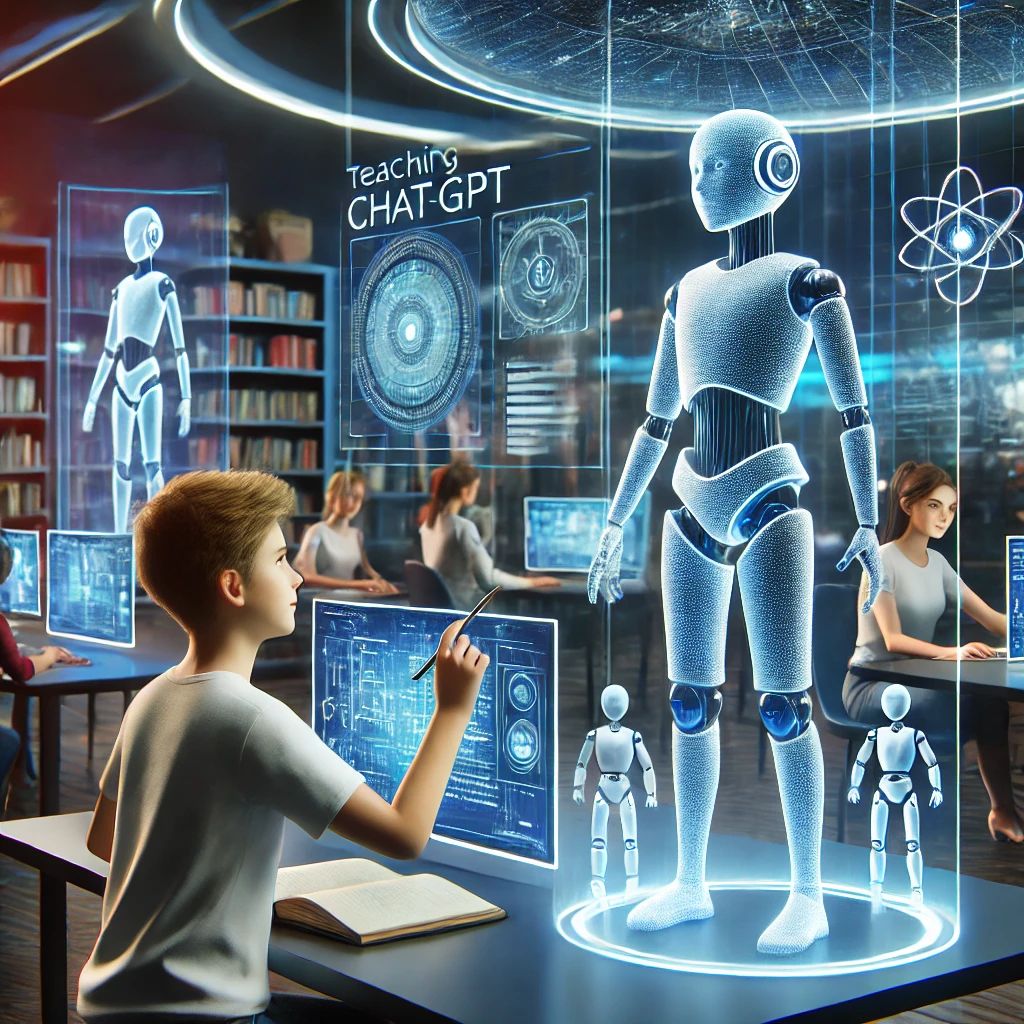AI as a teachable agent: Unlocking new possibilities in programming education
By positioning students as instructors guiding ChatGPT through programming tasks, the study highlights how AI can mimic peer-like interactions to deepen knowledge acquisition. This innovative use of AI demonstrates its potential to create scalable, engaging, and student-centered learning environments that transform education.

Artificial intelligence (AI) is rapidly reshaping the education landscape, bringing innovation to how students learn and engage with knowledge. From adaptive learning platforms to AI-driven tutors, these technologies are enabling personalized, accessible, and interactive learning experiences. One emerging trend is the use of AI not just as a teaching tool but as a collaborator—allowing students to learn by teaching. This approach fosters deeper understanding, critical thinking, and self-regulated learning (SRL), addressing gaps in traditional educational methods.
A study titled "Learning-by-Teaching with ChatGPT: The Effect of Teachable ChatGPT Agent on Programming Education," available on arXiv, takes this concept further by exploring ChatGPT as a teachable agent. By positioning students as instructors guiding ChatGPT through programming tasks, the study highlights how AI can mimic peer-like interactions to deepen knowledge acquisition. This innovative use of AI demonstrates its potential to create scalable, engaging, and student-centered learning environments that transform education.
Rethinking learning by teaching with AI
Learning by teaching is a well-established pedagogical strategy that encourages students to reorganize and explain knowledge, promoting deeper cognitive engagement. However, practical limitations, such as the lack of available peers or the time-intensive nature of teaching, often hinder its adoption in classrooms. Traditional teachable agents, such as static virtual assistants, have attempted to bridge this gap but are constrained by simplistic interactions and predefined responses.
The emergence of large language models (LLMs) like ChatGPT marks a significant leap forward. Unlike traditional teachable agents, ChatGPT can engage in natural, context-rich dialogues, mimicking human interactions. This opens new possibilities for students to act as mentors, guiding the AI in solving problems while reinforcing their understanding. The study focuses on programming education, specifically the classic "Eight Queens Puzzle," to evaluate the efficacy of ChatGPT as a teachable agent.
A new paradigm for programming education
The study involved 41 computer science students, divided into experimental and control groups. Both groups learned to solve the "Eight Queens Puzzle" using instructional videos. However, the experimental group interacted with ChatGPT as a teachable agent, guiding it to generate solutions. This interactive process allowed students to explain concepts, identify errors, and refine their problem-solving approaches.
The results were compelling. The experimental group demonstrated superior knowledge gains, with an adjusted mean score of 11.86 compared to 10.53 for the control group. Additionally, these students excelled in writing clear and readable pseudocode, showcasing an enhanced ability to organize their thoughts logically. However, there was no significant difference in code correctness, as ChatGPT often generated error-free solutions, limiting students’ opportunities to practice debugging.
Advancing self-regulated learning (SRL)
Beyond programming proficiency, the study emphasized the transformative effect of ChatGPT on SRL—a critical skill for independent learning. Students who taught ChatGPT reported higher self-efficacy, feeling more confident in their ability to tackle complex problems. They also adopted advanced cognitive strategies, such as planning tasks systematically and breaking them into manageable steps. These skills are essential not only for academic success but also for professional and personal growth.
Interacting with ChatGPT enabled students to engage in reflective practices, encouraging them to evaluate their own understanding while explaining concepts to the AI. This mirrors real-world problem-solving, where breaking down tasks and planning systematically are key to success. The findings suggest that AI teachable agents can serve as powerful tools for fostering proactive and reflective learning habits.
Implications for the future of education
The integration of AI into learning by teaching represents a paradigm shift in education. ChatGPT’s ability to simulate a peer-like teaching experience offers scalable and flexible learning opportunities across a range of disciplines. For instance, medical students could teach ChatGPT to diagnose conditions, honing their diagnostic skills while identifying gaps in their knowledge. Similarly, business students could guide ChatGPT through financial models, reinforcing their understanding of economic principles.
However, the study also highlights the importance of designing AI systems that encourage critical thinking and problem-solving. Introducing purposeful errors in AI-generated outputs could provide learners with valuable debugging practice, enhancing their ability to identify and resolve issues. Such features could make AI teachable agents even more effective in fostering well-rounded, critical thinkers.
The potential applications of AI teachable agents are vast. From personalized tutoring for students in remote areas to scalable solutions for workforce training, these systems could democratize access to high-quality education. By tailoring AI agents to specific domains, educators can create customized learning experiences that adapt to individual needs and contexts.
Redefining education with AI
By positioning ChatGPT as a teachable agent, the research highlights how AI can empower students to learn more effectively while fostering critical skills like self-regulation, planning, and problem-solving. As AI systems become increasingly sophisticated, their role in creating dynamic, interactive learning environments will expand, offering students new opportunities to engage, explore, and excel.
The implications of this research extend far beyond programming education. AI teachable agents like ChatGPT could redefine how we approach learning, making it more student-centered, scalable, and accessible. By embracing these innovations, educators and institutions can pave the way for a future where learning is not only effective but also engaging and empowering.
- FIRST PUBLISHED IN:
- Devdiscourse










